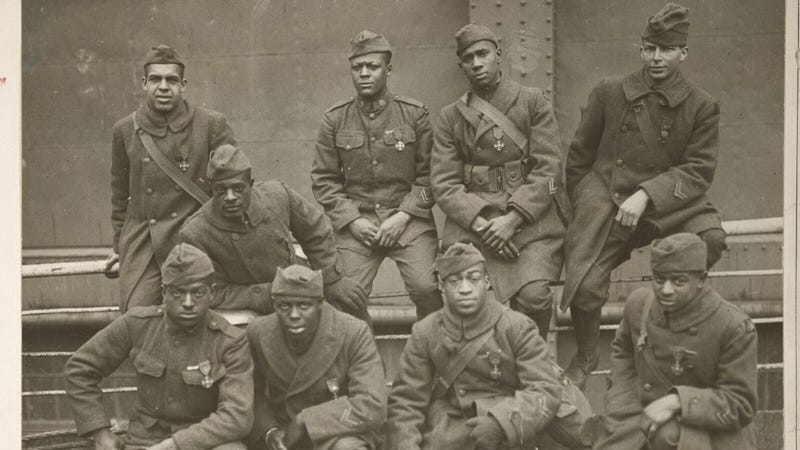
Defense Secretary Pete Hegseth on Sept. 3 recounted the tenacity and valor of a World War I-era predominantly Black National Guard unit, as descendants of those soldiers accepted the Congressional Gold Medal on behalf of their ancestors' actions during an award ceremony in Washington.
Taking place in the U.S. Capitol's Emancipation Hall, the ceremony honored the "Harlem Hellfighters" of the New York National Guard's 369th Infantry Regiment.
Despite the racial tensions that came with serving in a segregated Army stateside, the men of the 369th became one of the first African American units to serve overseas with the American Expeditionary Force during the war.
Once in Europe, the Harlem Hellfighters tallied 191 consecutive days of frontline combat — more time than any other American unit.
Hegseth began his remarks by highlighting the Hellfighters' tenacity by setting the scene at the beginning of the 369th's deployment from New York to France in the winter of 1917.
He noted that the regiment's ship encountered continuous obstacles — including breaking down and catching fire — resulting in the vessel having to make three attempts at leaving the East Coast between November and December before it could finally make its way toward France.
"And so, they sailed on through cold rain; they were soldiers, volunteers and they were incredible Americans," Hegseth said of the 369th's soldiers as they made their way across the Atlantic.
Prior to reaching France, Hegseth said the soldiers had to further persevere after an English tanker accidentally drifted into their ship, damaging it badly and thus necessitating further repairs in dangerous waters.
"Determined to get to France and take their place in the Great War, the soldiers refused to turn back," Hegseth said.
Once the regiment finally arrived in France on New Year's Day in 1918, Hegseth said the Harlem Hellfighters — who would eventually receive the "Hellfighter" moniker from enemy Germans due to how aggressively the U.S. soldiers fought — immediately went to work fighting under French command.
"Through valleys and over ridges filled with gas and smoke, they forged ahead; they faced the enemy head-on; they faced him at point-blank range; they faced him amid bullets and shells raining down; they were exceptional Americans, so they pushed on," Hegseth said of the Hellfighters' tenacious engagement of the enemy.
During the nearly 200 days of non-stop fighting — and in the process of suffering severe casualties — the Harlem Hellfighters were among the first allied forces to push ahead and cross the Rhine River into Germany.
"Think about that: six months in some of the most ferocious fighting you can imagine [and they] did not give up an inch," Hegseth said.
The secretary added that, when a quarter-million Americans lined the streets of New York in 1919 to celebrate the return of American soldiers from the war, many of the spectators wore lapel pins with an image of a rattlesnake to pay their respects to the 369th, whose members had been dubbed "rattlers" while fighting in Europe.
"[It was] the symbol of the men we honor today as the Harlem Hellfighters; the symbol of these soldiers who were the bravest Americans," Hegseth said.
"We ought always thank almighty God for such men; and may we honor them forever, especially because they were not honored in their time," he concluded.
The Congressional Gold Medal is the highest honor Congress can bestow.
